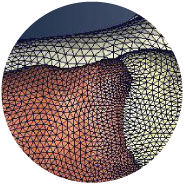-
04/11/2025
The trouble with “AI beats doctors” stories
AI is reshaping healthcare, but headlines often outpace reality. Behind the “AI beats doctors” hype lies a complex story of limited evidence, clinical needs, and human trust. Real progress will come from collaboration, not competition.
-Read more-
-
04/11/2025
Oncology Digital Twins workshop – Presentation video archive now available
Helen Byrne (University of Oxford) and Steven Niederer (King's College London) recently hosted a workshop on "The Mathematical Foundations of Oncology Digital Twins" at the Isaac Newton Institute.
-Read more-
-
30/10/2025
Unlocking Innovation: VPH attended the NoBoCap Summit on EU MDR & AI Act
As a partner of the NoBoCap community, VPH actively participated in the Annual NoBoCap Summit held in Brussels on 15-16 October 2025.
-Read more-
-
30/10/2025
VPH at Systemic Policy Framework on Innovation Procurement
On 21 October 2025. prof. Liesbet Geris, VPH Executive Director, delivered a key note in the context of High-level policy forum on systemic transformation and value-procurement of innovation.
-Read more-
-
29/10/2025
PhD and postdoc opportunities - October 2025
New calls with deadlines in October-November
-Read more-
-
29/10/2025
In the literature: October 2025 highlights
Click here to read some interesting recently published papers from our community. If you have published an article in the field of in silico medicine, send it to us: we will include it in this section of the newsletter!
-Read more-
-
28/10/2025
Commission work programme 2026
The European Commission Work Programme 2026 was released on October 21, 2025, setting out the key strategies, action plans and legislative initiatives that will lay the foundation for the work ahead.
-Read more-
-
28/10/2025
Virtual Human Twins: from research to bedside
From Barcelona to Brussels, Europe’s collective effort to bring Virtual Human Twins (VHTs) into real-world healthcare took a major step forward.
-Read more-
